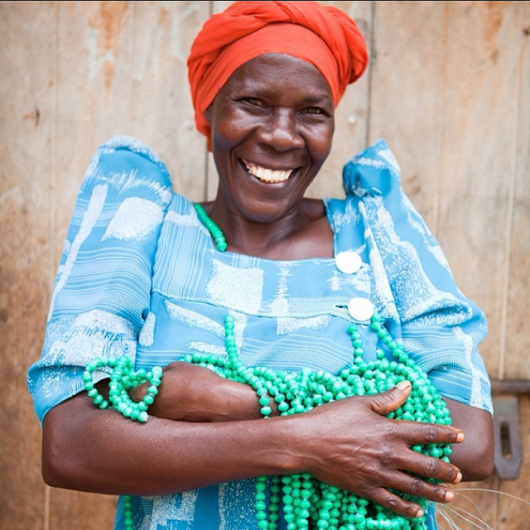Jewelry and Female Empowerment in Uganda
 One proven way to fight poverty is through entrepreneurship and empowerment, specifically among women. In Uganda, where poverty is still prevalent, there are various jewelry companies working locally to employ women and teach them skills they need to escape poverty. Through female empowerment in Uganda, along with education and financial security, these five jewelry brands are making substantial efforts to eradicate poverty locally, and engage businesses globally.
One proven way to fight poverty is through entrepreneurship and empowerment, specifically among women. In Uganda, where poverty is still prevalent, there are various jewelry companies working locally to employ women and teach them skills they need to escape poverty. Through female empowerment in Uganda, along with education and financial security, these five jewelry brands are making substantial efforts to eradicate poverty locally, and engage businesses globally.
Projects Have Hope
Projects Have Hope is a certified non-profit organization promoting female empowerment in Uganda, specifically the Acholi Quarter region. In 2006, Projects Have Hope began buying locally made paper-bead jewelry from the Acholi women. Women, in turn, received compensation, which created a steady source of income in these vulnerable regions.
Beyond financial security, the program has an educational aspect. In 2007, the adult literacy program was created. Currently, there are 32 students enrolled in the program, women aged 18 to 45. New sessions are constantly conducted in the hopes of improving the literacy rate amongst women in the country, which is 71.5 percent.
Vocational training also occurs so that women can expand their professional skills in a variety of ways: “catering, hairstyling and salon management, tailoring, knitting, computer and general office skills studies, and driver’s education.” All these efforts can help increase women’s ability to combat poverty in their lives.
Akola
Akola is a company that ensures 100 percent of its revenue generated from jewelry sales returns to the mission of fighting poverty amongst women in Uganda. Women are employed to make jewelry from paper, cow horns, leather, glass, bone, metals, gemstones and textiles. All materials are sourced ethically and all training for the jewelry making is provided by Akola.
Akola also provides various tiers beyond jewelry-making, including economic employment and social services such as wellness training and educational programs. All are meant to help vulnerable women achieve security in life through female empowerment in Uganda.
Bead For Life
Developed in 2004, Bead For Life is based entirely on female empowerment in Uganda. The company trains women locally on entrepreneurial skills and paper-bead production.
In addition to jewelry, the company created a school called the Street Business School. Thus far, 52 thousand Ugandans have been impacted through the program. Eighty-nine percent of graduates have a business within two years of graduation and the average increase in income is 211 percent. Participating women often live below the national poverty line before attendance so the skills they learn greatly impact their future.
31 Bits
The force behind 31 Bits is generating a cycle of support: women support women by buying jewelry they want to wear. Female empowerment in Uganda is achieved as the company employs women with dignified jobs for their artisanal skills. The company has seen great success and many endorsements from celebrities like Sophia Bush, Jessica Alba and Candace Cameron Bure.
Business, along with physical and mental health, are all aspects taken seriously by the company; in fact, they provide training and educational programs for both. Profound progress against fighting poverty often means elevating these factors.
Tuli
Tuli recognizes sustainable change as being linked to long-term solutions, such as job growth. Their work connects women to a larger market of buyers, which ensures that participating communities will have consistent access to a global economy.
In addition to financially compensating the artists for their work, Tuli reinvests their profits back into Kampala, the capital city of Uganda. As more people migrate to the cities, the capital is becoming an important center of development in the country. Tuli gives back in the form of social projects within the city.
Tuli is a registered social purpose corporation, which allows them to take social or environmental issues into consideration during its decision-making processes instead of just focusing on profit-maximizing efforts. As a result, female empowerment in Uganda is a focus of their work.
Local and Global Success
The World Bank reports that Uganda, as a Sub-Saharan African country, is one of the fastest to reduce its amount of the population living below the $1.90 a day poverty line. In 2013, they reduced their population living below the national poverty line to 19.7 percent — a momentous accomplishment.
As women work locally, crafting their jewelry, their ability to sell globally is having tremendous effects on their ability to become financially secure and escape poverty.
– Taylor Jennings
Photo: Google
